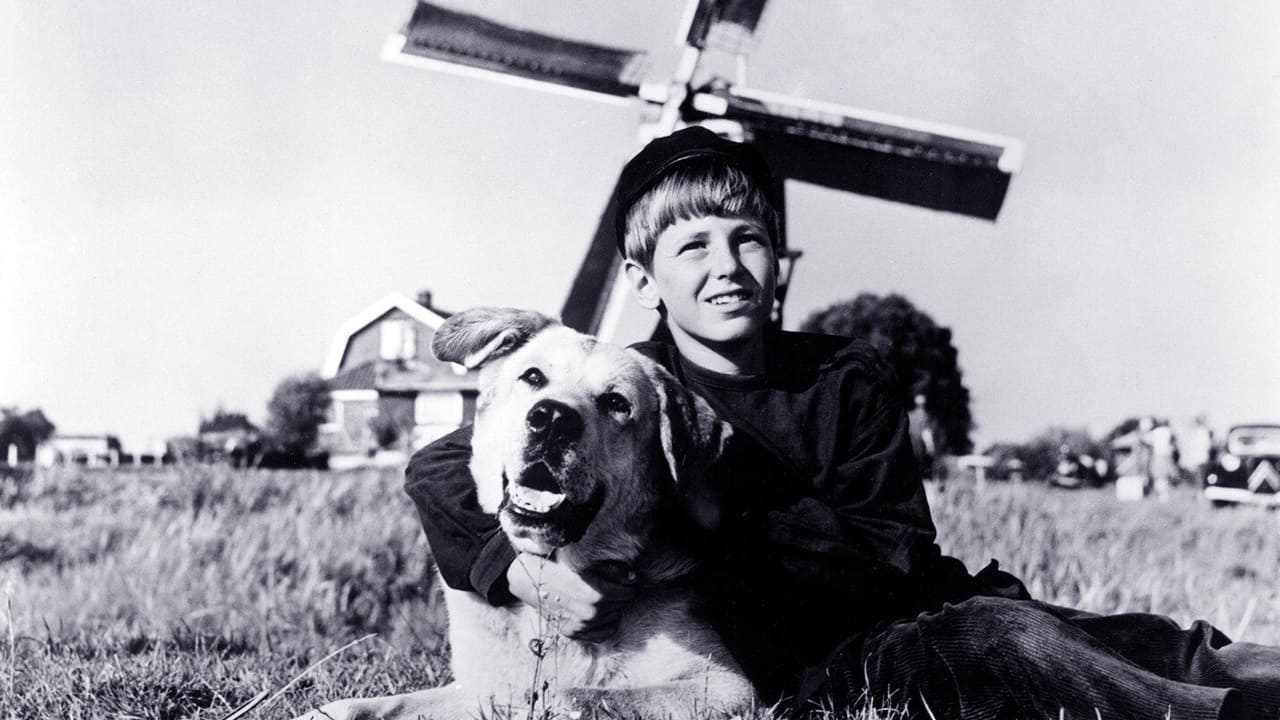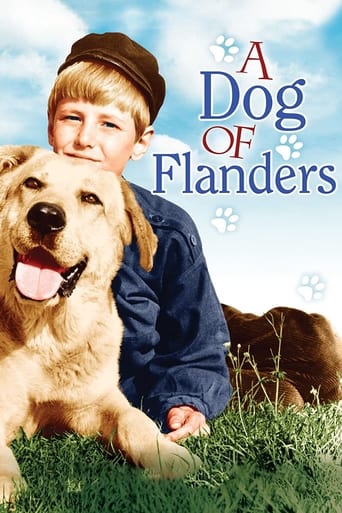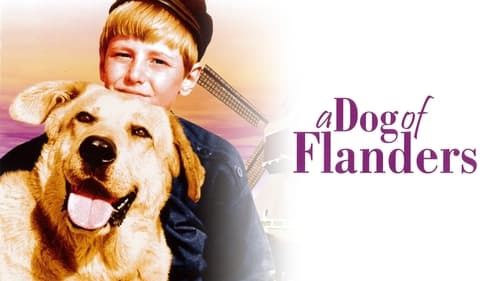Diagonaldi
Very well executed
SmugKitZine
Tied for the best movie I have ever seen
Clarissa Mora
The tone of this movie is interesting -- the stakes are both dramatic and high, but it's balanced with a lot of fun, tongue and cheek dialogue.
Billie Morin
This movie feels like it was made purely to piss off people who want good shows
thinker1691
On May 30th, 1640, the great Flemish Painter, Peter Paul Rubens, died leaving a plethora of great works. It is among these masterpieces, The Raising of the Cross, which became the foundation of perhaps one of the most beloved Hollywood films of all time. The movie is called " A Dog of Flanders " and is directed by James B. Clark. " It tells the story of a young boy named Nello Dass (David Ladd) who with his grandfather, Jehan (Donald Crisp) reside in the city of Antwerp and make a modest living delivering milk. Nello does his best to aid his aging, ailing grandfather, who plans of sending the boy to sea or have him become an apprentice miller. Nello on the other hand dreams of one day becoming a great artist like Rubens. Unfortunately, their poverty prevents their ambitions. Instead,during their delivery rounds, they discover a badly abused cart dog lying in a ditch. With care and compassion they nurse the dog back to health and with the new name Patrasche, becomes part of the impoverished family. However, several obstacles confront Nello, namely, his grandfather's sudden death and the cruel former owner of the dog returns to claim him. Theodore Bikel plays Piet van Gelder, is the gruffy painter who befriends the boy and does a remarkable job of adding sympathetic cohesion to this story. With a touch of humanity, love and endearment, the audience is allowed a moment to believe that a single act of kindness can bring tears and inner joy. Easily Recommended to all. ****
bkoganbing
Back when I was 14 I saw A Dog of Flanders and viewing it today showed it is a fresh and appealing as I remember it.Young David Ladd is Nello Daas the aspiring young artist who lives with his elderly infirm grandfather, Donald Crisp. The two of them take in a cruelly treated dog and name it Patrasche after the dog that famed artist Peter Paul Rubens had. Life's pretty hard for the Daases, becomes doubly so after Crisp dies and young Nello can no longer care for Patrasche. Life also has a funny way of resolving things as well.Besides Ladd and Crisp the only other English speaking player in the film is Theodore Bikel. The continental locations in Belgium and the Netherlands which were one country back at the time this story takes place are well photographed. Ladd, Crisp, Bikel as the artist who recognizes the talent in Ladd give wonderful performances.There was another version of A Dog of Flanders done by RKO studios in the Thirties. It might be nice to see for comparison, but I doubt it matches this one.For this A Dog of Flanders is a timeless family classic.
shneur
Here is the classic Flemmish version of the "boy and his dog" tale as young Nello, apparently about 11 or 12, struggles to establish his identity as an artist amidst adverse circumstances. David Ladd, Alan Ladd's son, plays the protagonist: he was 13 at the time, but somehow managed to play an 8-year-old in his next film! Anyway, this is the real story, without all the silly, sappy and frankly unbelievable stuff and coincidences gratuitously added in the Disney version of 1999. Even the dog is more convincing! David Ladd is quite good, though his emotions seem a bit forced at times and he's certainly not "one of the greatest child actors of all time" as his filmography touts. Donald Crisp as the grandfather and a so-young Theodore Bikel as the temperamental artist both offer excellent performances. Perhaps life was indeed harder then, and as the late Douglas Adams would point out, digital watches had not been invented, but children were still considered PEOPLE: they could work for a living, enjoy the fruits of their labor, and even live alone if they chose -- or with a dog. All that is gone now. Am I the only one who questions that this is "progress"?
jckruize
Early effort of producer Robert Radnitz (SOUNDER, WHERE THE RED FERN GROWS) is distinguished by colorful location photography (in the Netherlands), fine acting and an uncondescending script.David Ladd (son of Alan) gives a believable, unmannered performance as the orphan boy with artistic longings, and veteran Donald Crisp shines, as always, as his loving grandfather. Character actor Theodore Bikel is also an asset, playing the prickly artist who somewhat reluctantly takes the boy under his wing. Dog-lovers should note that the title canine's role in this story is important yet not central, serving mainly to set the plot in motion. But it's a lovable pooch nonetheless, and goes through its paces with perfect doggish realism, a tribute to its skilled handlers and a refreshing change of pace from such modern CGI manipulations as SNOW DOGS.This film is unflinching in its portrayal of what can be a harsh and uncaring world, and younger and/or sensitive children may find it tough going before the ultimately happy ending. My daughter saw this when she was 8; two-thirds of the way into it she was weeping openly and was only somewhat mollified by the heart-warming conclusion. Recommended for 10 and up.


